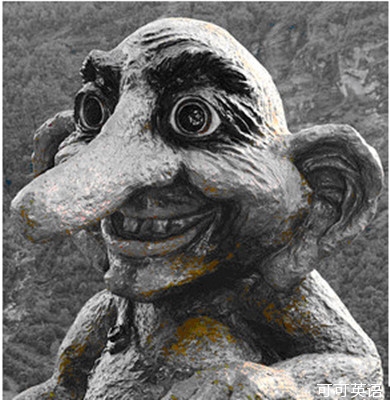商業(yè)報道
Patent reform in America
美國專利法改革
Trolls on the hill
山上的巨魔
Congress takes aim at patent abusers
國會瞄準了濫用專利權(quán)者
IN SCANDINAVIAN folklore trolls were dumpy with grotesque faces and uncontrollable hair.
在斯堪的納維亞半島的民間傳說里,巨魔們都是長著丑臉、披著亂發(fā)的矮胖形象。
These horrifying creatures have given their name to patent trolls, who buy up lots of vaguely worded patents and then use them to extract cash from unsuspecting victims—who pay them off rather than risk a pricey lawsuit.
這些令人恐懼的生物已經(jīng)將名頭賦予那些專利流氓們了,這些人收購大量含糊名稱的專利并用來賺無辜受害者的錢,而這些受害者寧愿膚淺給流氓們也不愿意冒險打官司花更多的錢。
 It is not hard to identify the obvious ones, but writing laws to catch them without endangering everyone else is.
It is not hard to identify the obvious ones, but writing laws to catch them without endangering everyone else is.
現(xiàn)在不難去定義這些很明顯的案例,但是立法去抓這些流氓們而不傷及無辜就有難度了。
Having tried once with the America Invents Act of 2011, Congress is having another go.
既2011年的美國發(fā)明法案的嘗試后,國會正在嘗試另一種方法。
The Innovation Act looks set to become law by the end of the year, after attracting an unusual amount of support from both parties.
創(chuàng)新法案在引起了兩黨內(nèi)部不尋常的支持率之后,看似會在年底確定成為正式法律。
Over the past few decades there has been a rapid increase in the number of lawsuits over intellectual-property infringements.
在過去的幾十年里,侵犯專利權(quán)訴訟的數(shù)量持續(xù)快速增長。
According to Jim Bessen of BostonUniversity, since the early 1980s the number has increased sixfold.
根據(jù)波士頓大學(xué)的Jim Bessen的數(shù)據(jù),在20世紀80年代早期,訴訟就已增加了六倍。
That might merely be a sign that there has been lots of innovation, but the threefold increase in the number of lawsuits per patent filed over the same period suggests that something else is going on.
這可能是出現(xiàn)很多創(chuàng)新產(chǎn)品的跡象,但是在同時期在平均每項專利上申請的訴訟增加了三倍就說明滋生了其他的問題。
Many patent cases involve companies defending real innovations from copycats.
很多公司在涉及侵犯專利案時都是為了保護真正的創(chuàng)新不被剽竊。
But a large number are pure shakedowns, says Josh Mendelsohn of Engine Advocacy, a lobby group for startups.
但是來自Engine Advocacy的Josh Mendelsohn說,很多案例都是純粹的敲詐。 Engine Advocacy是一家為創(chuàng)業(yè)公司開辦的游說團體。
He says some venture capitalists have to give extra cash to the firms they have backed just to fight off trolls.
他認為一些風投家必須投資更多的錢給那些公司以便支持他們擺脫專利巨魔的侵襲。
Since patent lawsuits can be filed against the end users of new technologies, startups can find that customers will only deal with them if they are indemnified against future infringements.
因為專利訴訟只能被新技術(shù)的終端使用者申請,創(chuàng)業(yè)公司能發(fā)現(xiàn),消費者們只會在一種情況下使用這申請,那就是如果在未來的侵權(quán)案例被要求賠償專利者損失。
It is often cheaper and quicker to pay up.
這種情形通常比付專利費更加便宜、便捷。
Though the patent system touches all areas of business, the problem is concentrated in software.
雖然專利系統(tǒng)涉及商業(yè)的所有領(lǐng)域,但是問題主要集中在軟件專利上面。
Such patents are often abstract, dealing in descriptions of what the software does rather than in lines of code.
這類的專利總是抽象的,它們描述軟件處理的工作而不是具體的編碼。
Timothy Holbrook of EmoryUniversityinAtlantadoubts that fixing the problems caused by these abstract patents requires a new law.
亞特蘭大埃默里大學(xué)教授猜想需要一部新的法律來修復(fù)這類由抽象專利引起的問題。
Todd Dickinson, of the American Intellectual Property Law Association, says that the 2011 law has provisions to deal with such problems and just needs time to settle in.
美國知識產(chǎn)權(quán)法協(xié)會說,2011年的法律就有專門規(guī)定處理類似問題并且只需要時間去判定。
Those arguments have been brushed aside, for two reasons.
因為兩個理由,那些爭論就被擱置一邊了。
First, the troll problem faced by tech investors is not getting better.
第一,技術(shù)投資者面臨的專利流氓問題沒有起色。
Second, the sending of threatening patent-infringement letters has become speculative.
第二,散發(fā)專利侵權(quán)的威脅信已經(jīng)令人們懷疑。
Even restaurants and grocery shops have received letters threatening them with a patent lawsuit, over such things as offering Wi-Fi to customers or mapping their locations online.
甚至餐館和雜貨店都收到了類似于他們侵犯了專利權(quán)要提起訴訟的信件,例如將免費無線網(wǎng)提供給顧客或者在網(wǎng)上標明他們的方位。
Not all congressmen have tech startups in their districts, but most have constituents who have had letters telling them to pay $500.
不是所有國會議員在他們的選區(qū)里都有技術(shù)型創(chuàng)業(yè)企業(yè),但大部分都有選民遇到過被要求支付500$專利費的信件。
Those threatened with lawsuits must pay just to find out about their alleged infringement and can run up large legal bills even when they win.
這些訴訟威脅里必須付所謂侵權(quán)的錢和即便專利流氓們贏了所花的訴訟費是差不多的。
By shifting the costs of litigation on to the loser and forcing patent holder to disclose what the infringement is, the Innovation Act hopes to change this.
創(chuàng)新法案希望改變一個現(xiàn)狀,就是轉(zhuǎn)移這些訴訟費到輸家身上,并強迫專利持有者揭露侵權(quán)的集體行為是什么。
There is probably no perfect equilibrium that protects inventors without stifling new inventions.
可能沒有完美保持平衡的法律,既能保護發(fā)明家們權(quán)利又能不揭露新發(fā)明。
At the moment the scales are weighted in one direction.
現(xiàn)在,天平還是傾向一個方向。
The new act would add some balance.
新的法案會增加一些平衡性。
 It is not hard to identify the obvious ones, but writing laws to catch them without endangering everyone else is.
It is not hard to identify the obvious ones, but writing laws to catch them without endangering everyone else is.
 It is not hard to identify the obvious ones, but writing laws to catch them without endangering everyone else is.
It is not hard to identify the obvious ones, but writing laws to catch them without endangering everyone else is.